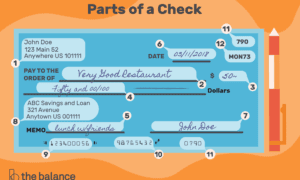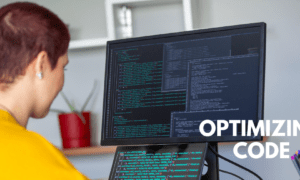Antivirus software is a cornerstone of cybersecurity, helping protect your devices and data from a wide range of threats.
To ensure the best virus protection for pc operates at its best, here are 15 quick tips for maximizing its efficiency.
1. Keep Your Antivirus Updated
Regularly update your antivirus software to ensure it has the latest virus definitions and security patches. New threats emerge daily, and updates help your antivirus stay effective.
2. Enable Real-Time Scanning
Turn on real-time scanning to have your antivirus continuously monitor your files and system for threats. This proactive approach can block malware before it causes damage.
3. Perform Regular Scans
Schedule regular antivirus scans of your entire system to identify any hidden or dormant threats that may have slipped through real-time scanning.
4. Set Up Automatic Updates
Enable automatic updates for your antivirus program, so you don’t have to remember to update it manually. This ensures you’re protected against the latest threats.
5. Enable Firewall Protection
Activate your computer’s built-in firewall or use a third-party firewall in conjunction with your antivirus software for an extra layer of protection.
6. Use Strong, Unique Passwords
Strong and unique passwords for your accounts can help prevent unauthorized access. Many antivirus programs offer password managers to assist with this.
7. Beware of Suspicious Emails
Exercise caution when opening email attachments or clicking on links, especially if the email sender is unknown. Your antivirus should help detect malicious email attachments.
8. Secure Your Wi-Fi Network
Password-protect your Wi-Fi network to prevent unauthorized access. Your antivirus software can help identify and block suspicious network activity.
9. Regularly Update Your Operating System
Keep your operating system up to date with security patches and updates. An updated OS can help prevent vulnerabilities that malware exploits.
10. Use a Standard User Account
Avoid using an administrator account for everyday tasks. Standard user accounts have fewer privileges, reducing the potential impact of malware.
11. Backup Your Data
Regularly back up your important data to an external drive or a secure cloud storage service. This ensures you can recover your files in case of ransomware or other data loss incidents.
12. Educate Yourself
Stay informed about the latest cybersecurity threats and best practices. Knowledge is a valuable tool in protecting yourself online.
13. Avoid Downloading from Untrusted Sources
Only download software and files from reputable sources. Avoid downloading cracked or pirated software, as they often contain malware.
14. Enable Browser Security Features
Many antivirus programs offer browser extensions that can help block malicious websites and protect your online activities.
15. Regularly Review Your Antivirus Settings
Take some time to review your antivirus program’s settings. Ensure that it’s configured to provide the level of protection you need without being overly intrusive.
By following these tips and making the most of your antivirus software, you can significantly enhance your online security and protect your digital life from cyber threats. Remember that cybersecurity is an ongoing effort, so staying vigilant and proactive is essential.
Frequently Asked Questions – (FAQs)
How often should I update my antivirus software?
It is advisable to enable automatic updates for your antivirus software to ensure it receives the latest virus definitions and security patches. Updates should occur regularly, often daily, to protect against new threats effectively.
Can I rely solely on my antivirus software for online security?
While antivirus software is a crucial component of cybersecurity, it’s not the only one. It’s essential to practice safe online habits, use strong passwords, enable firewalls, and keep your operating system and software up to date for comprehensive protection.
Are best free antivirus software as effective as paid ones?
Paid antivirus programs typically offer more advanced features, better customer support, and faster threat response times. However, many free antivirus options provide decent basic protection and can be suitable for users with limited needs and budgets.
Is real-time scanning necessary if I perform regular antivirus scans?
Real-time scanning is essential because it monitors your system continuously, providing immediate protection against threats. Regular scans are crucial for detecting hidden or dormant threats that may have evaded real-time scanning.
Can I use more than one antivirus program on my computer for extra security?
It is generally not advisable to run multiple antivirus programs simultaneously on a single device. They can conflict with each other, causing system instability. Instead, focus on using one reputable antivirus solution and complement it with other security measures.
How can I tell if my antivirus software is working correctly?
You can perform various tests to ensure your antivirus is functioning correctly. Check for regular updates, verify that real-time scanning is enabled, and run occasional antivirus scans. Additionally, use trusted online tools to check for malware or virus infections.
Can antivirus software protect against all types of cyber threats?
While antivirus software is effective against many types of malware, including viruses, Trojans, and spyware, it may not catch every threat, especially if it’s a zero-day exploit or an advanced persistent threat (APT). Combining antivirus with other security practices provides a more comprehensive defense.
What should I do if my antivirus detects a threat?
If your antivirus software identifies a threat, follow its recommended actions, which often include quarantining or removing the threat. It’s essential to act promptly and avoid interacting with the detected threat to prevent further damage.
How can I ensure my antivirus doesn’t slow down my computer?
To prevent performance issues, ensure your computer meets the antivirus software’s system requirements. Also, configure the antivirus settings to balance protection and performance. Avoid running multiple resource-intensive security programs simultaneously.





























